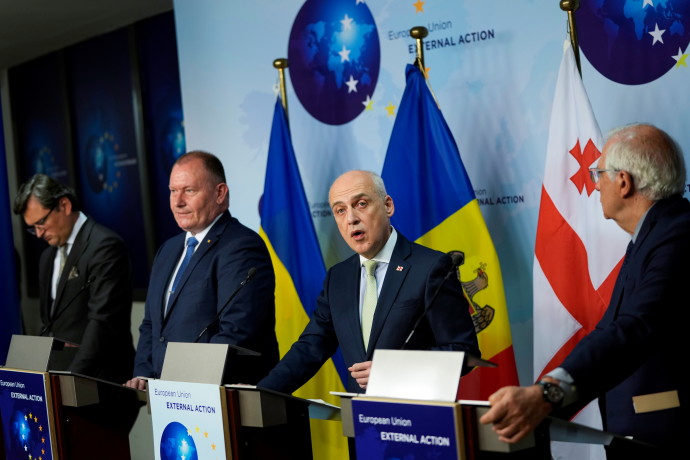South Ossetia will hold a second round of presidential elections since none of the five presidential candidates cleared the required 50 percent mark, Emilia Gagieva, chairman of the republic's Central Election Commission (CEC), said at a briefing last Monday.
"Based on the data of 95% of the processed election ballots, none of the candidates for the post of President of the Republic of South Ossetia received more than half of the necessary votes and therefore none of them was elected," Gagieva said.
"The Election Commission, in accordance with Article 50 of the Constitutional Law of the Republic of South Ossetia ‘On the Election of the President of the Republic of South Ossetia’, sets a second round of presidential elections for the two registered candidates who received the highest number of votes" she added.
De facto President Anatoly Bibilov received 33.5 percent, while his main rival, the leader of the Nykhas party, Alan Gagloyev, got 36.9 percent. the two will compete in a runoff second round that will be held no later than 15 days after the final results of the weekend election are announced.
Georgia condemned the "so-called" presidential election in its breakaway region of South Ossetia.

The Georgian Foreign Ministry stated that the vote is “another illegal act of Russia directed against Georgia’s sovereignty and territorial integrity, the so-called elections cannot have any legal effect." The ministry stated the vote itself violates international norms and principles.
“The so-called referendum on unification with Russia recently announced by the Tskhinvali occupation regime will likewise be null and void as another illegal step taken towards annexation,” the Ministry added.
A referendum on unification with Russia is planned after the election, De facto president Bibilov told RIA Novosti. His initiative for a nationwide vote on this issue is a step towards the "strategic goal" of the Ossetian people, Bibilov stated.
The Georgian Foreign Ministry also called on Russia to respect the sovereignty and territorial integrity of Georgia, comply with its international obligations, and revoke its illegal decision to recognize the so-called independence of the occupied regions.
Russia recognized the independence of South Ossetia and Abkhazia on August 26, 2008, after Russia's invasion of Georgia. The conflict centered on South Ossetia and Abkhazia, two "breakaway provinces" in Georgia, and was resolved after only 5 days with the two regions gaining a semi-independent status, backed by Russia. Russia has maintained a military presence in both regions since.
